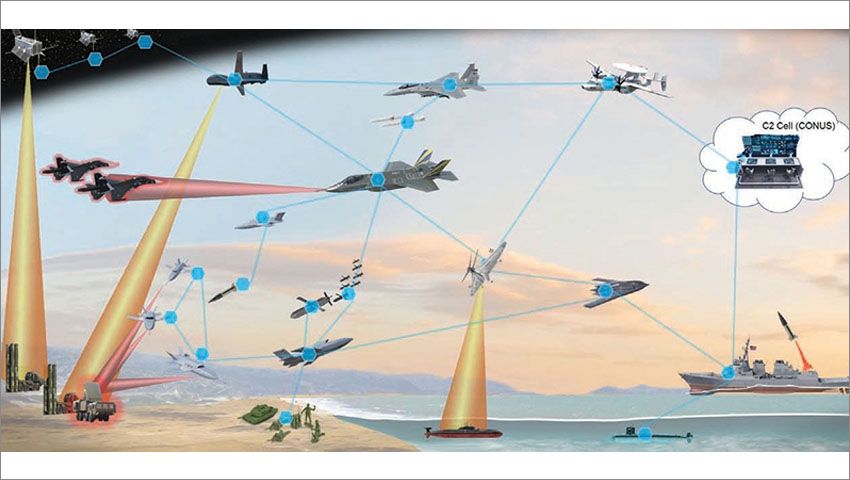The future looks stealthy and unmanned.



The path forward begins with admitting the nation has a bomber shortfall. Retiring more aircraft exacerbates the problem. Nor is this just an Air Force problem. Bombers are national assets essential to our security strategy and must be prioritized accordingly. If other services have excess funds to invest in ideas like a 1,000-mile-range cannon when thousands of strike aircraft, various munitions and remotely piloted aircraft can fill the exact same mission requirements, it is time for a roles and missions review to direct funding toward the most effective, efficient options. Bombers would compete well in such an assessment. Ultimately, the solution demands doubling down on the B-21 program.
There comes a point where you cannot do more with less. Given the importance of bombers to the nation, rebuilding the bomber force is not an option — it is an imperative.
Retired U.S. Air Force Maj. Gen. Larry Stutzriem served as a fighter pilot and held various command positions. He concluded his service as the director of plans, policy and strategy at North American Aerospace Defense Command and U.S. Northern Command. He is currently the director of studies at the Mitchell Institute for Aerospace Studies, where Douglas Birkey is the executive director. Birkey researches issues relating to the future of aerospace and national security, and he previously served as the Air Force Association’s director of government relations.

The Pentagon’s cutting edge science department is working to create a therapeutic “shield” that could be mass produced to provide temporary protection for people from diseases like the coronavirus, boosting their immunity until an actual vaccine is developed. The result could also help slow the viruses’ advance, buying time for hard-pressed hospitals and clinics worldwide.
The Defense Advanced Research Projects Agency, or DARPA, has funded efforts to create such therapies from studying COVID-19 samples from individuals who have already recovered from the virus. Scientists working with the organization’s Pandemic Prevention Platform (PPP) are sequencing the B cells of one individual who recovered from COVID-19. B cells create antibodies, proteins created by the human immune system to fight a particular invading microorganism.

China’s expanding aircraft carrier fleet needs fighters — and they might be stealthy.
By Caleb Larson

Last March, Chinese researchers announced an ingenious and potentially devastating attack against one of America’s most prized technological assets—a Tesla electric car.
The team, from the security lab of the Chinese tech giant Tencent, demonstrated several ways to fool the AI algorithms on Tesla’s car. By subtly altering the data fed to the car’s sensors, the researchers were able to bamboozle and bewilder the artificial intelligence that runs the vehicle.

Circa 2011
The U.S. Air Force is working to produce its next-generation fighter jet, and word has it that the energy around the project is going to be electric. Literally.
It’s called the “F-X” concept (not to be confused with the VFAX/VFX/FX concepts of the 1960s and ’70s) and it’s intended to enter service in 2030.
The fighter is supposed to focus on energy efficiency, which the Air Force believes could allow for new weapons and capabilities, The Diplomat reports. The concept is referred to as the “More-Electric Aircraft,” and while the name doesn’t quite roll off the tongue, the point is to rethink the vehicle much in the same way automakers rethought the car for electric powertrains.

The Tesla Model S and Model X come standard with Bioweapon Defense Mode, which is possible due to a massive HEPA filter. If you haven’t seen it or replaced it, you’re likely to be shocked by its size. According to Tesla, the filter is “100 times more effective than premium automotive filters.” It removes “at least 99.97% of fine particulate matter and gaseous pollutants, as well as bacteria, viruses, pollen, and mold spores.” Is it really necessary, though?
There’s a pretty good chance that going out in your car is not going to make you highly susceptible to contracting the coronavirus, but we’re not doctors. At this point, it seems even doctors and scientists aren’t 100-percent sure about many details related to this new disease. We can tell you that we have seen many people walking alone outside with masks and gloves on, and just about as many people driving down the road with their windows closed and masks and gloves on.

Scientists found that a class of particles known as bosons can behave as an opposite class of particles called fermions, when forced into a line.
The research, conducted at Penn State University and funded in part by the Army Research Office, an element of U.S. Army Combat Capabilities Development Command’s Army Research Laboratory, found that when the internal interactions among bosons in a one-dimensional gas are very strong, their velocity distribution transforms into that of a gas of non-interacting fermions when they expand in one dimension. The research is published in the journal Science.
“The performance of atomic clocks, quantum computers and quantum systems rely upon the proper curation of the properties of the chosen system,” said Dr. Paul Baker, program manager, atomic and molecular physics at ARO. “This research effort demonstrates that the system statistics can be altered by properly constraining the dimensions of the system. In addition to furthering our understanding of foundational principles, this discovery could provide a method for dynamically switching a system from bosonic to fermionic to best meet the military need.”

The airspace above future battlefields is expected to be increasingly congested with large numbers of unmanned aerial systems, manned aircraft, munitions and missiles filling the skies. To de-conflict airspace activities of friendly forces and rapidly counter an enemy’s actions on the battlefield requires new technologies to effectively integrate effects from all domains.